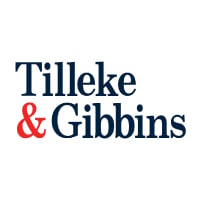

Vice president – head of legal department | RATCH Group






Yuwasan Vivekmetakorn
Vice president – head of legal department | RATCH Group
Team size: Nine
What are the projects that you are most proud of working on over the past 12 months?
I was delighted to be part of the company’s progress toward sustainability through three main projects. The first one was an import of 600,000 tons of LNG to supply a power plant in Thailand. It was the first LNG import project by a private company. The second project was a 1,400 MW gas -fired, combined-cycle power plant in Thailand. My team and I gave legal advice throughout the project development. The plant has been commercially operated in both phases (2023 and 2024) and since then has played key role in generating reliable electricity and ensuring the stability of the power system of Thailand. The third project consists of various renewable projects (solar, wind and hydro power) of more than 2,000 MW in Thailand, Australia and South East Asia. Our team provides legal advice for the executives in these projects with a strong commitment to reduce greenhouse gas emissions.
How do you approach managing legal aspects during periods of instability or crisis to ensure the organisation’s resilience?
It is essential that information from all of the relevant parties is gathered and that we get all the facts we need to analyze the situation. Once the problems are identified, directions can be given to the parties involved, and short-term and long-term goals can be set. Within the legal team, I take a crisis or an unprecedented circumstance as an opportunity to mentor, direct, and monitor my team members as far as legal aspects are concerned while ensuring them that they would have the support, advice, and directions they need should there be any possible or unexpected change.
Appraisal of our own performance and dialogues with the relevant parties in terms of our performance throughout the process help us see our strengths and areas for improvement. This can gradually build trust among the team members and among colleagues in the organization. I believe leadership, teamwork, and trust help an organization navigate through a challenging time and contribute to resilience.
What do you think are the most important attributes for a modern in-house counsel to possess?
Willingness to learn new things and communication skills. As the world is getting increasingly complex with new technologies, issues, and regulations, willingness to learn new things and even to unlearn and relearn can help in-house counsels navigate through the modern workplace environment. This willingness can also propel professional development in all stages.
The other indispensable attribute is communication skills which involve not only explaining, giving legal advice but also attentive listening. Working with executives and colleagues who may not have a background or training in laws, in-house counsels are required to explain as well as clarify legal concepts in an accessible manner for them while ensuring compliance with laws and regulations.
Communication skills also entail communication among legal professionals and networking in various platforms and communities. In Thailand, Thai-CCA is a community which allows in-house counsels of different generations to network and exchange perspectives, experiences, and opinions.
Based on your experiences in the past year, are there any trends in the legal or business world that you are keeping an eye on that you think other in-house lawyers should be mindful of?
The advent of AI and its presence in legal profession are interesting. However, in my view, while AI can be of some assistance, key aspects of legal work such as contract reviews and giving legal opinions should not rely too much on AI. These aspects are intrinsic to legal professionals. Lawyers should very much be engaged in reviewing legal documents or at least in the final editing step.
New regulations related to climate change, ESG, data protection as well as tariff barriers are worth mentioning because these certainly have and will continue to affect how businesses operate. In-house lawyers are, therefore, required to monitor and assess such effects and work collaboratively with colleagues in other departments, authorities, and agencies to minimize potential risks and solve problems brought about by changes in the regulations.